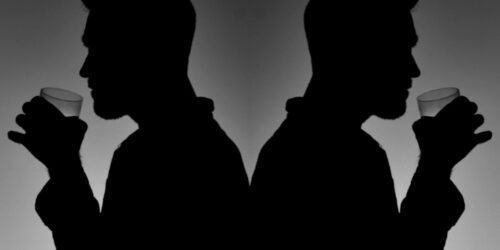The Intricate Link Between Anxiety and Addiction

Understanding the complex relationship between anxiety disorders and substance abuse is crucial for anyone navigating these challenges. This connection, often referred to as a two-way street, signifies that not only can anxiety lead to substance abuse as a form of self-medication, but substance abuse can also exacerbate or even trigger anxiety disorders. This article delves into this intricate relationship and explores effective therapies for managing both conditions.
For many individuals, the journey into substance abuse begins as an attempt to cope with overwhelming anxiety. Substances like alcohol, prescription drugs, or illegal drugs may initially seem like a solace, providing temporary relief from anxiety symptoms. However, this relief is often short-lived and can spiral into dependency, where you find yourself trapped in a cycle of using substances to alleviate anxiety, only to experience heightened anxiety as the effects wear off.
Conversely, chronic substance abuse can lead to the development or worsening of anxiety disorders. The chemical imbalances caused by regular substance use can alter brain function, leading to heightened anxiety levels. Furthermore, the stress of maintaining an addiction, including the social, financial, and legal repercussions, can significantly contribute to anxiety.
Breaking the Cycle: Effective Therapies for Anxiety and Addiction
Fortunately, there are effective therapies available that address both anxiety disorders and substance abuse simultaneously. Cognitive-behavioral therapy (CBT) is one such approach, helping you understand the thought patterns that contribute to both anxiety and substance use and providing strategies to manage them. Another promising treatment is dual diagnosis programs, which treat both conditions in an integrated manner, recognizing that they are often interlinked.
The Role of Medication and Support Groups
In some cases, medication may be necessary to manage anxiety disorders, particularly in the early stages of recovery from addiction. Medications like SSRIs (selective serotonin reuptake inhibitors) can be effective in reducing anxiety symptoms without the addictive potential of some anti-anxiety drugs. Additionally, support groups, both for anxiety and addiction, can provide a community of understanding and shared experiences, offering you a sense of belonging and mutual support.
Controversies and Ongoing Debates
There are ongoing debates and controversies in this field, particularly regarding the use of medication in treating individuals with a history of substance abuse. Concerns about the potential for addiction to prescribed medications, and the efficacy of alternative therapies like mindfulness and holistic treatments, are often at the forefront of these discussions.
Understanding Substance-Induced Anxiety Disorder (SIAD)
Substance-Induced Anxiety Disorder (SIAD) is a mental health disorder that arises from the use of certain substances, be they legal like alcohol, prescription medications, and caffeine, or illegal drugs such as cannabis, hallucinogens, and opioids. This psychiatric illness exemplifies the complex relationship between substance use and anxiety, highlighting the need for medical treatment that addresses both aspects.
Anxiety doesn’t just affect your mind; it also has a profound impact on your physical health, particularly the respiratory system. For instance, anxiety can exacerbate conditions like chronic obstructive pulmonary disease (COPD) and asthma, leading to increased risks and worsened symptoms. This relationship underscores the importance of managing anxiety, especially in individuals with underlying respiratory issues.
While occasional anxiety is a common experience, often triggered by concerns like health or finances, anxiety disorders are more severe and persistent. Unlike temporary worries, anxiety disorders are characterized by long-lasting, often escalating anxiety that significantly impacts daily functioning, differentiating them from normal anxiety levels.
Substance abuse and anxiety disorders often fuel each other. Anxiety disorders may lead individuals to self-medicate with substances like alcohol, seeking temporary relief. However, this self-medication can worsen anxiety symptoms over time, creating a cycle where each disorder exacerbates the other. This interdependence is especially noticeable in conditions like social anxiety disorder, where alcohol abuse is a common co-occurring issue.
Tailoring Treatment for Co-occurring Disorders
Addressing the dual challenge of substance abuse and anxiety disorders requires a nuanced treatment approach that considers both conditions. Whether through cognitive-behavioral therapy, medication, or support groups, recognizing and treating the intertwined nature of these disorders is key to effective recovery.
The rise of digital media and constant connectivity has introduced new dimensions to anxiety and addiction. There’s a growing concern about how social media, online gaming, and constant access to digital content contribute to increased anxiety levels, particularly among younger demographics. This digital-induced anxiety might fuel a reliance on substances as coping mechanisms, leading to a cycle of addiction and heightened anxiety. The debate centers around the need for digital literacy and wellness programs to mitigate these risks.
Genetic Predisposition to Anxiety and Addiction
Research increasingly points to genetic factors playing a significant role in predisposing individuals to both anxiety disorders and substance abuse. This biological basis raises questions about the effectiveness of purely behavior-focused treatments and the potential need for more personalized, perhaps even genetically informed, therapeutic approaches. The ethical implications of genetic screening for susceptibility to these disorders are a topic of much debate.
Economic and Social Inequalities in Treatment Access
There’s a growing discussion about how economic and social disparities affect access to treatment for anxiety and substance abuse. Individuals from lower socio-economic backgrounds often face barriers to receiving effective treatment, exacerbating the cycle of anxiety and addiction. This disparity brings to the fore the need for more equitable healthcare policies and community-based support systems.
The Role of Alternative Therapies in Treatment
Alternative therapies, such as acupuncture, yoga, and herbal remedies, are becoming increasingly popular in treating anxiety and addiction. These methods challenge traditional medical approaches, with debates centered on their efficacy and the potential for integrating them into mainstream treatment plans. This discussion opens up avenues for holistic treatment models that combine conventional and alternative therapies.
The long-term psychological impacts of the COVID-19 pandemic, particularly in relation to increased anxiety and substance use, are a developing field of study. The pandemic has arguably led to a spike in both anxiety levels and substance abuse, raising questions about the lasting effects on mental health and addiction patterns. This topic explores the need for long-term mental health strategies to address the fallout of such global crises.
In South Africa, the integration of mental health and substance abuse treatment is increasingly recognized as essential. For instance, dual-diagnosis programs that address both anxiety disorders and substance abuse simultaneously are becoming more prevalent. These programs combine psychotherapy, such as cognitive-behavioral therapy (CBT), with addiction counseling, offering a comprehensive approach that tackles the root causes of both conditions.
Community-Based Support Systems
South Africa’s diverse cultural landscape has given rise to community-based support systems that cater to specific groups. These systems often blend traditional healing practices with modern therapeutic techniques, providing a culturally sensitive approach to treating anxiety and addiction. This method is particularly effective in communities where traditional beliefs play a significant role in daily life.
Mindfulness and Holistic Therapies
There’s a growing trend in South Africa towards incorporating mindfulness and other holistic therapies into addiction and anxiety treatment programs. Techniques like guided meditation, yoga, and mindfulness-based stress reduction (MBSR) are used alongside more traditional therapies. These practices help individuals develop coping strategies for anxiety, reducing the likelihood of substance reliance.
Pharmacotherapy in Managing Anxiety Disorders
In cases where anxiety disorders are severe, South African healthcare providers often employ pharmacotherapy as part of the treatment plan. Medications like SSRIs (selective serotonin reuptake inhibitors) are prescribed to manage symptoms of anxiety, with careful monitoring to prevent potential substance abuse issues, particularly in individuals with a history of addiction.
As we’ve explored, understanding this dynamic is key to developing effective treatment strategies. From the integrated treatment approaches that address both conditions simultaneously, to the incorporation of community-based support and holistic therapies, each aspect plays a vital role in managing these intertwined issues.
It’s important to recognize that dealing with anxiety and addiction is a deeply personal journey, one that is often fraught with challenges and setbacks. Yet, it’s also a journey of hope and resilience. Whether you’re in South Africa or elsewhere, remember that you are not alone in this. The increasing awareness and evolving treatment options offer a beacon of hope.
We invite you to engage further with this topic. Your experiences, insights, and stories can shed light on this complex issue and help others feel less alone in their struggles. Feel free to share your thoughts in the comments or spread awareness by sharing this article. Together, we can foster a deeper understanding and create a supportive community for those navigating the two-way street of anxiety and addiction.






